Regulation of microtubule nucleation
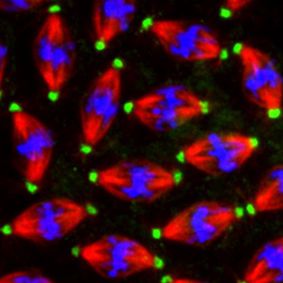
We aim to gain a fundamental understanding of how microtubule nucleation is spatio-temporally regulated in the context of multi-cellular animals.
We are particularly interested in how the mechanisms regulating microtubule formation and organization vary between cell types, including dividing cells and neurons.
Keywords: Microtubules, cell division, neurons, gamma-tubulin, g-TuRC, MTOC, centrosome, Drosophila
+33 (0)1 57 27 80 95 Contact @pconduit.bsky.social
We want to gain a fundamental understanding of how microtubule nucleation is spatiotemporally regulated within the context of multi-cellular animals. We are particularly interested in how the mechanisms regulating microtubule formation and organisation vary between cell types.
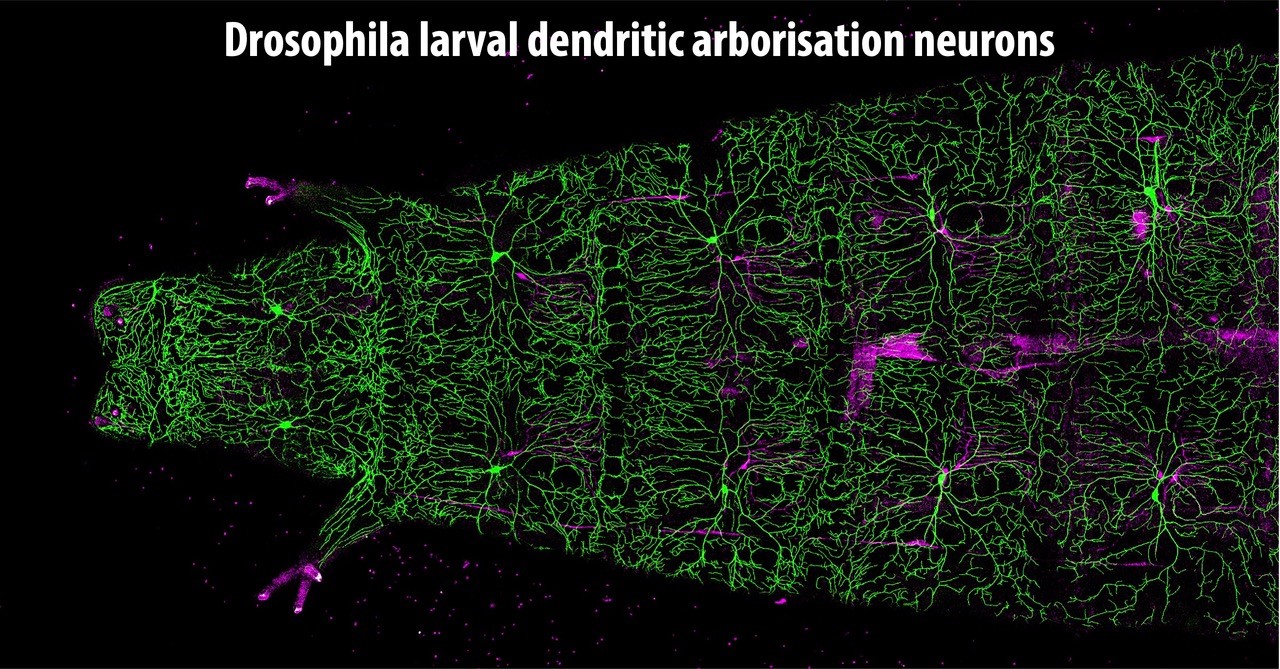
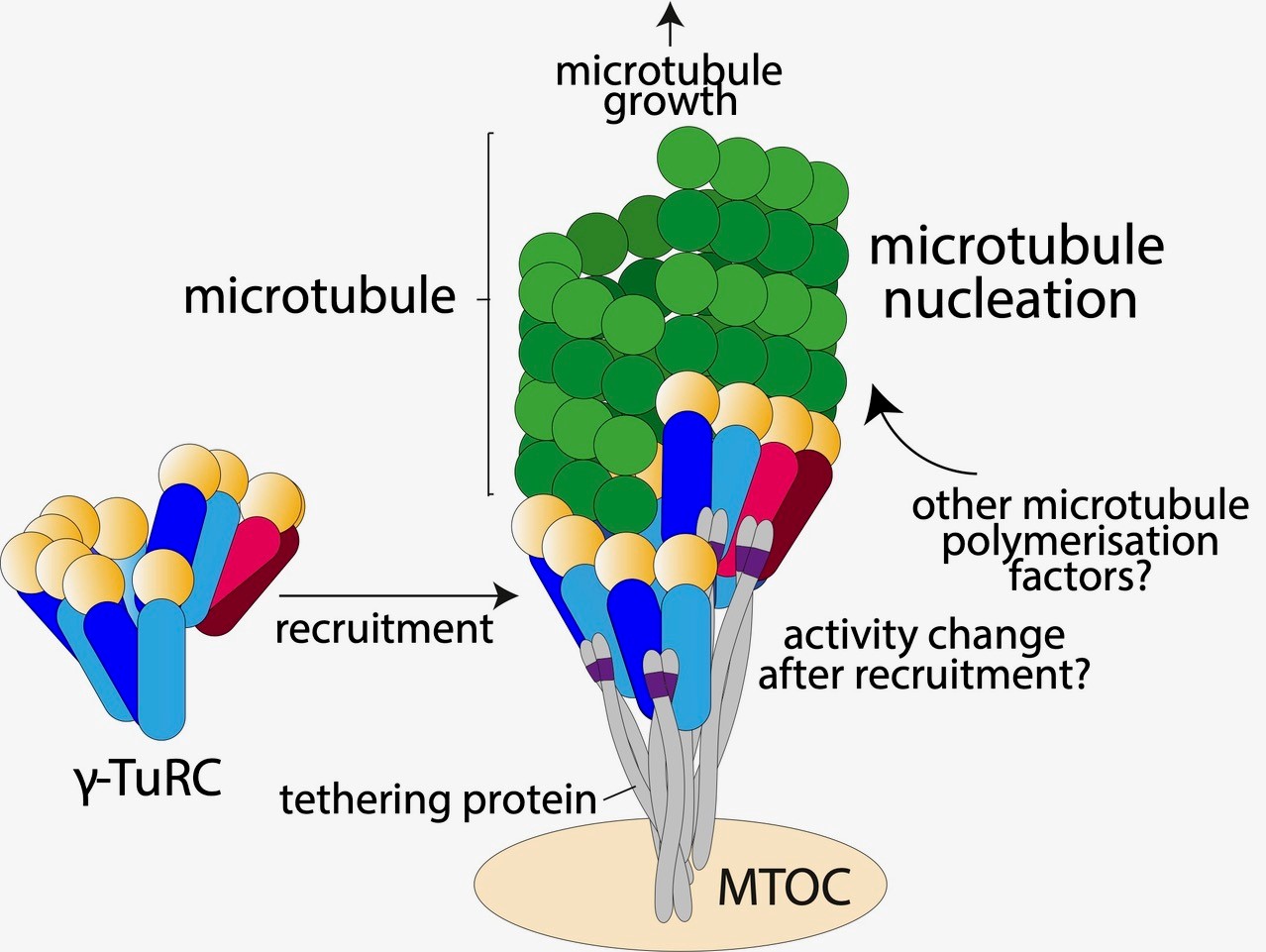
Background
Microtubules are dynamic polymers that make up part of the cell’s cytoskeleton. They form a spectacular variety of arrays across different cell types and developmental stages. For example, during cell division microtubules are arranged into the mitotic spindle, which separates the duplicated chromosomes equally between daughter cells. In mature neurons, however, microtubules are arranged into polarised networks that run through axons and dendrites. These networks are required for structural support, neurite growth, and transport of molecules between the cell body and the neurite terminals. All cells use the same fundamental machinery to generate and organise microtubules, so how do different cells form such different microtubule arrays?
Research programme
We are addressing this question by studying the molecular regulation of multi-protein γ-tubulin ring complexes (γ-TuRCs), which template and catalyse de novo microtubule formation. γ-TuRCs are recruited and activated at specific sites within the cells in order to generate new microtubules at the right place and time. These sites include microtubule organising centres (MTOCs), such as centrosomes during mitosis or the Golgi in migrating fibroblasts, the sides of pre-existing microtubules, or specialised regions of cytoplasm, such as the cytosol surrounding mitotic chromatin. Once generated, molecular motors can slide microtubules against one another or even guide the direction of microtubule growth. Microtubules can also be stabilised by post-translational modifications or binding of other proteins. While not a focus of the lab, we are also interested in these post-nucleated processes as collectively they are important for correct microtubule array formation.
Main research areas currently within the lab
- Investigating the molecular mechanisms regulating γ-TuRC recruitment and activation at different MTOCs
- Understanding how microtubule formation and polarity are regulated within neurons.
Methodology
We predominantly use Drosophila as an in vivo multi-cellular animal model system. We combine precise manipulation of the genome, fixed and live advanced cell imaging, and biochemical assays to probe the molecular regulation of microtubules and the effect of their mis-regulation within cells.
Impact
Our work has implications for cancer and neurodegenerative disease, as γ-TuRCs have been identified as potential anti-cancer targets and microtubules form part of an important response during neuronal stress.
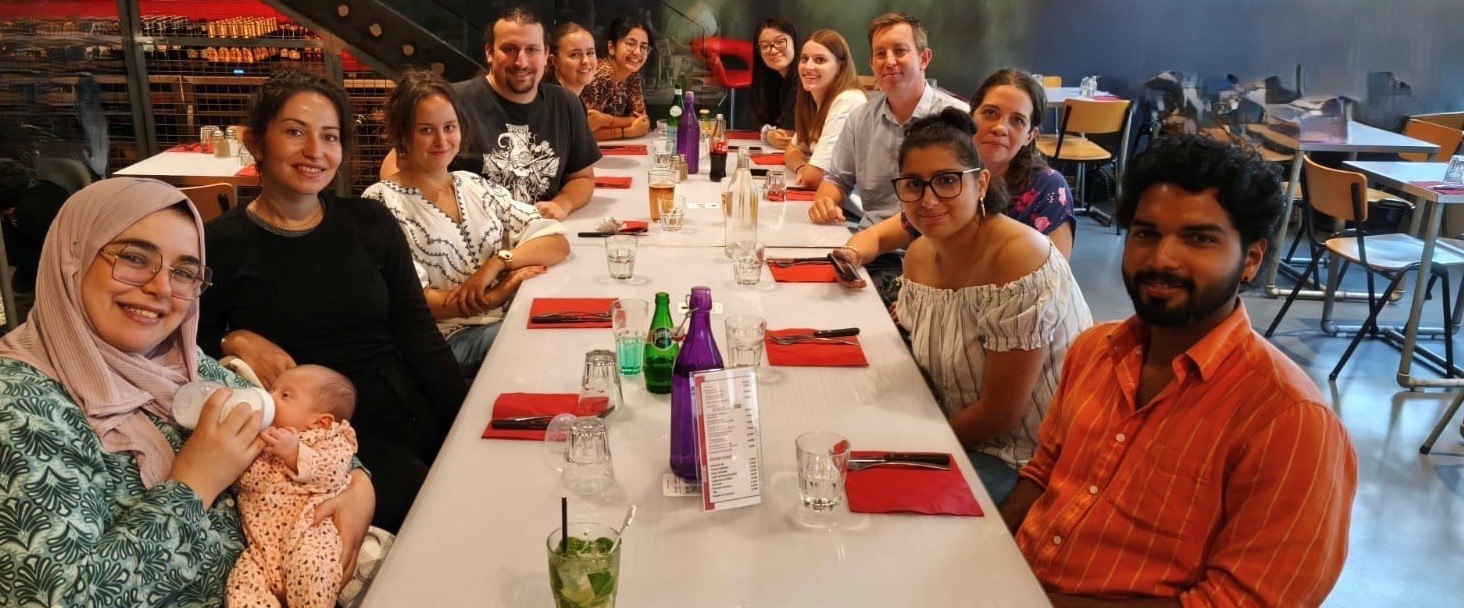
Members
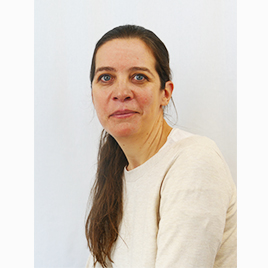 Isabelle BECAM, Assistant Professor, CONDUIT LAB+33 (0)1 57 27 80 95, room 457B
Isabelle BECAM, Assistant Professor, CONDUIT LAB+33 (0)1 57 27 80 95, room 457B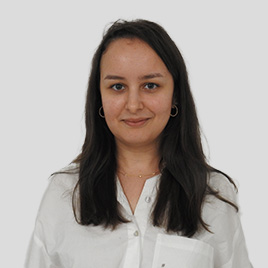 Abir ELFARKOUCHI, PhD student, CONDUIT LAB+33 (0)1 57 27 80 95, room 457B
Abir ELFARKOUCHI, PhD student, CONDUIT LAB+33 (0)1 57 27 80 95, room 457B Cecile HU, PhD student, CONDUIT LABroom 457B
Cecile HU, PhD student, CONDUIT LABroom 457B Léane LEMOUR, Intern, CONDUIT LAB
Léane LEMOUR, Intern, CONDUIT LAB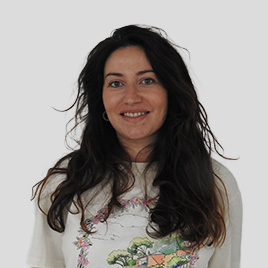 Léa MAMMRI, Biology engineer, CONDUIT LAB+33 (0)1 57 27 80 08, room 457B
Léa MAMMRI, Biology engineer, CONDUIT LAB+33 (0)1 57 27 80 08, room 457B Akila MERAH, Postdoctoral researcher, CONDUIT LAB+33 (0)1 57 27 80 95, room 457B
Akila MERAH, Postdoctoral researcher, CONDUIT LAB+33 (0)1 57 27 80 95, room 457B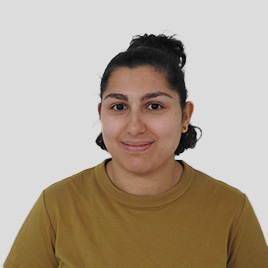 Anaelle TAIEB, PhD student, CONDUIT LAB+33 (0)1 57 27 80 95, room 457B
Anaelle TAIEB, PhD student, CONDUIT LAB+33 (0)1 57 27 80 95, room 457B Cleophee VAN-MAELE, Biology engineer, CONDUIT LAB
Cleophee VAN-MAELE, Biology engineer, CONDUIT LAB Chithran VINEETHAKUMARI, Postdoctoral researcher, CONDUIT LAB+33 (0)1 57 27 80 95, room 457B
Chithran VINEETHAKUMARI, Postdoctoral researcher, CONDUIT LAB+33 (0)1 57 27 80 95, room 457B
To contact a member of the team by e-mail: name.surname@ijm.fr
Publications
- Impulscience, Fondation Bettencourt-Schueller
- ANR project grant
- IDex, Université Parix Cité
21.11.2023 : Impulscience Prize 2023
We are always looking for talented postdocs that have a keen interest in microtubule regulation. If you want to join the team, email Paul Conduit with a CV and cover letter explaining why you would like to join and naming 2 referees.



